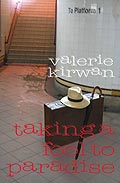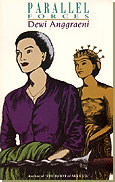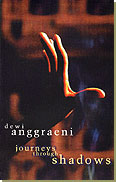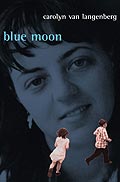
Set in Malaysia, Indonesia and Australia, Snake is the first novel that Dewi Anggraeni has written about the Chinese descent communities in Southeast Asia. Their stories, woven into the tapestry of the mainstream Malay societies of Malaysia and Indonesia, have not only contributed to the respective society and national culture. They have also moulded the Southeast Asian overseas Chinese into a fascinating society in their own right.
In common with Dewi’s earlier novels, Snake presents us with an intangible, even mysterious, part of Southeast Asian life. While effective curses, and the power inanimate objects can have over people – power for good or power for evil – are generally considered in Australia to be fantasy, they are very much a part of life in Southeast Asia. In Snake, a brooch worn as a clasp for the traditional blouse, the kebaya, has power over its owner.
Featuring Serena, a choreographer and lead dancer, Snake is the story of a family split by honour and pride, a family under the curse of a beautiful brooch. The brooch, named peniti ronce by its first owner, initially fascinates, and then destroys, its owner.
Serena becomes the new owner of the brooch, at a difficult time in her relationship with her partner, Kurt. At the same time, she is strangely drawn to Nancy, whom she meets by chance in Malacca. When Kurt returns to Australia after his daughter sprains her ankle, Serena and Nancy discover they are of the same family, but from different sides of the dispute. Nancy’s mother is shocked to learn that Serena has the brooch, and warns her to get rid of it before it destroys her.
Snake is the story of Serena’s increasing enchantment with the brooch and her family’s efforts to convince her to voluntarily part with it to save herself from its curse. The thrilling climax is totally unpredictable.
Dewi’s images of the crowded streets, the shops and homes of Malacca and the family gathering at home for a funeral in Jakarta, bring the reader into a closer relationship with the Chinese communities in Malaysia and Indonesia than is possible in an all too brief holiday tour.
March 2003, 240pp
Fiction, 1st Edition
Paperback, 216 x 138 mm
ISBN 0 9578735 7 3
RRP $aud 22-95
ISBN-13 9780957873575
The Author
As a published writer of novels, short stories and essays, and an established role as a regional journalist, Dewi Anggraeni is well-known in both Australia and Indonesia, especially among those in both countries who maintain an interest in regional affairs.
Her major works have been published by Indra Publishing:
Who Did This To Our Bali?, 2003
Snake, 2003
Neighbourhood Tales: A Bilingual Collection, 2001
Journeys Through Shadows, 1998
Stories of Indian Pacific, 1992
Parallel Forces, 1988
The Root of all Evil, 1987
Dewi’s poetry, short stories and essays appear in anthologies from a range of publishers:
“Journey to My Cultural Home” in Weaving a Double Cloth; Stories of Asia Pacific Women in Australia (Ed. Myra Jean Bourke, Susanne Holzknecht and Annie Bartlett, Pandanus Books, 2002)
“Exposing Crimes Against Women” in The Last Days of President Suharto (Ed. Edward Aspinall, Herb Feith and Gerry van Klinken, Monash Asia Institute, 1999)
“Rejected by Ibu Pertiwi” in Motherlode (Ed. Stephanie Holt and Maryanne Lynch, Sybylla Feminist Press, 1997)
“From Indonesia to Australia and Back: Cultural Sensitivities” in Crossing Cultures: Essays on Literature & Culture of the Asia-Pacific (Ed.Bruce Bennett, Jeff Doyle, Satendra Nandan, Skoob Books, 1996)
“Illegal” in Our Heritage (Ed. Satyagraha Hoerip, Pustaka Binaman Pressindo, 1993)
“Irritations” in Striking Chords (Ed. Sneja Gunew and Kateryna O Longley, Allen & Unwin, 1992)
“Mal Tombé” in Beyond the Echo (Ed. Sneja Gunew and Jan Mahyuddin UQP, 1988)
“A Foreigner in East Gippsland” in Up From Below (Women’s Redress Press Inc., 1987)




